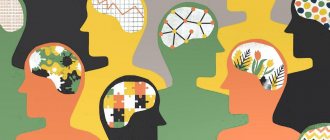Getting quality sleep at night is incredibly important for your health. In fact, it is as necessary as proper nutrition and exercise. But, unfortunately, there are many reasons that can prevent him. Modern people sleep much less than previous generations. And the quality of sleep also decreased.
Here are 10 reasons why quality sleep is important.
Poor sleep affects weight gain
Yes, lack of sleep leads to weight gain and, consequently, obesity. According to research from the US National Institutes of Health, people who don't get enough sleep weigh more than those who get enough sleep. In fact, lack of sleep is one of the strongest risk factors for obesity.
A 2008 study by the US National Institutes of Health found that 89% of children and 55% of adults with short sleep duration were very likely to be obese.
The effect of sleep on obesity may also be increased or decreased by other factors, such as hormones and motivation to exercise. Therefore, if you want to lose weight, then you need good sleep.
Key message: Lack of sleep increases the risk of weight gain and obesity in both children and adults.
Benefits of Sleep for the Brain
It's clear as day that sleep has many benefits. Sleep helps us stay young, healthy, helps fight infections, relieves pain, balances emotions, etc. But more on that later. First, let's look at the benefits of sleep for the brain.
Along with exercise, good nutrition and healthy relationships, sleep is the key to a long and healthy life, as well as productive work.
Roman philosopher of the first century AD Quintilian Fr.
Memory and sleep
Modern science confirms Quintilian's insight. Indeed, the advice to get a good night's sleep is typically given to people facing difficult decisions or to students preparing for exams. And this is scientifically proven.
Neuroscientists have found that sleep promotes “quantitative and qualitative changes in memory patterns.” Researchers are studying how memories of events and facts change after sleep. Brain analysis shows strengthening of synaptic connections during rest.
It is during sleep that our mind turns short-term memories into long-term ones. Sleep has been found to be critical for both consolidating new memories and preparing the brain to acquire new knowledge.
Sleep research shows that “lack of rest before performing a task compromises the molecular processes in the brain necessary to perform it.”
Sleep also promotes learning. Good sleep is necessary to prepare the brain to form new memories before learning, and after learning to sort through important information and retain it.
But, paradoxically, in order to remember something, you need to forget something. Memory must be selective: in order to store something in it, the brain must edit a large amount of information that we have learned previously.
This process occurs during sleep: it helps to get rid of unnecessary memories. Sleep helps you remember important things and organizes the clutter of unnecessary information.
We sleep to remember and we sleep to forget . The magic of deep sleep releases the past to prepare the mind for the future and allows us to remain in the present. This is the amazing effect of sleep on memory.
Those who sleep well consume fewer calories
Studies have shown that people try to compensate for lack of sleep with calories and therefore their appetite increases.
Sleep deprivation affects hormonal levels - in particular, as identified by the US National Institutes of Health, appetite hormones. The peptide hormone ghrelin increases, causing hunger, while leptin, which suppresses hunger, decreases. In fact, you don't want to eat, you just didn't get enough sleep.
It follows: Lack of sleep affects appetite hormones. Those who get enough sleep consume fewer calories than those who get little sleep.
Signs of lack of sleep
How can you tell if you are sleep deprived? Here are three general tips:
Fatigue
While not all daytime fatigue is the result of insomnia, sleep deprivation often leads to fatigue during the day.
If you experience significant daytime fatigue, try increasing the amount of sleep each night and see if your excess fatigue decreases and your energy increases.
Mood swings
If you feel moody and irritable for no reason, you may be sleep deprived. Again, focus on getting enough sleep and see if your mood improves. Check out our article on herbs to manage mood swings.
Difficulty concentrating
If you can't concentrate at work or school, it may mean you need more sleep. It's hard to stay focused when you have insomnia. Try getting more sleep to see if your concentration improves.
Good sleep improves concentration and productivity
Sleep is important for a variety of brain activities, including cognition, concentration, performance, and productivity. And lack of sleep can make them worse.
A good example is a study of the activities of medical interns. Interns with a standard schedule and extended work hours of more than 24 hours made 36% more medical errors than those interns who got good sleep.
Another study found that reduced sleep time may have the same negative effects on the brain as alcohol. There is evidence that good sleep improves problem-solving ability and memory function in adults and children.
Key message: Good sleep can improve problem-solving skills and memory performance. Lack of sleep has been proven to impair brain function.
What kind of sleep is healthy?
Sleep is a rather complex process. Many scientists are still studying it and cannot come to a common opinion. It consists of several stages, each of which is useful in its own way. The appearance of these stages is due to the activity of different brain structures.
- First phase. Slow sleep.
During this phase the person is dozing. His brain is almost as active as during the day. Memories of the past day are spinning in my head. In the first phase, ideas for solving a problem may appear intuitively.
- Second phase. Slow sleep.
Another name for the phase is light. This is a superficial sleep in which a person is easily awakened.
- Third phase. Slow sleep.
It lasts quite a bit - 10-20 minutes.
- Fourth phase. Slow sleep.
A stage of very deep sleep in which a person is difficult to awaken. The main processes of energy restoration take place in it.
- Quick sleep.
The most mysterious, but at the same time important stage. During her time we dream. All brain indicators do not differ from wakefulness.
Each stage is beneficial for the body in its own way. All phases are combined into a cycle that needs to be completed about 5 times. Scientists believe that this is approximately 7-9 hours of sleep for an adult, 11-12 for children. However, everyone has an individual need for sleep. It is necessary to determine the optimal period for which you get enough sleep.
So, in order for your sleep to be complete and healthy, you need to choose the optimal sleep time for yourself and go through the full cycle about 5 times.
People who get enough sleep do better in sports
The US National Institutes of Health conducted studies that showed that quality sleep improves athletic performance. Basketball players took part in the tests; Those who got regular sleep experienced improvements in speed, accuracy, reaction time and mental well-being.
There was another study regarding older women. Short sleep directly affected physical fitness. The trial involved more than 2,800 women and found that poor sleep was associated with slower walking, lower grip strength and greater difficulty performing independent activities.
To summarize: Prolonged sleep improves many aspects of sports and physical performance.
How to calculate the value of sleep
What is important for the body is not certain hours of sleep, but darkness in the bedroom during rest. This can be achieved by going to bed at sunset. Or the second option is to buy blackout curtains. These curtains do not let light into the bedroom even on a sunny day.
View BlackOut curtains on AliExpress at a discount
In complete darkness, the brain produces melatonin , a sleep hormone necessary for the recovery of the body. Peak melatonin production during normal sleep occurs between 0:00 and 3:00 hours. After which the level of the hormone decreases, so the body prepares for awakening. It turns out that sleep from 0:00 to 3:00 has the maximum value from a physiological point of view. And this is at odds with the data from the table presented above.
However, taking into account the results of research and the recommendations of somnologists, we come to the conclusion that the maximum benefit from sleep can be obtained if you sleep from 22:00 to 6:00.
Those who sleep little have a higher risk of heart disease and stroke
The quality and duration of sleep can have a significant impact on many health risk factors. In particular, those that contribute to the development of chronic diseases, including cardiovascular diseases.
A review of 15 medical studies found that those who don't sleep enough are at greater risk for heart disease than those who sleep 7-8 hours a night.
Consequently: If you sleep less than 7-8 hours a day, then there is a high risk of developing cardiovascular diseases, as well as stroke.
Is napping good for you?
Daytime naps are beneficial not only for children, but also for adults. Sleeping during the day is not only possible, but also necessary. However, there are some rules for daytime sleep: it is better to sleep from 12:00-14:00, you do not need to enter deep phases of sleep, so its duration should be about 30 minutes. Such a dream will give you a surge of strength and energy, improved digestion, good mood and improve thought processes.
The importance of sleep for human health is enormous. At the same time, for it to be useful, it is important to organize it correctly. Do not neglect this, because the quality of life and well-being of a person largely depends on sleep.
Sleep influences sugar metabolism and risk of type 2 diabetes
Experiments were conducted, which revealed that sleep restriction affects blood sugar levels and reduces insulin sensitivity. Young healthy men were subjected to sleep deprivation: for 6 days in a row they could sleep only 4 hours. This caused symptoms of prediabetes. After returning to normal sleep duration, these symptoms disappeared within a week.
Poor sleep habits affect blood sugar levels in the general population. Those who sleep less than 6 hours a night have an increased risk of developing type 2 diabetes.
Abstract: Lack of sleep can cause prediabetes in healthy adults in as little as 6 days. Many studies show a strong connection between short sleep and type 2 diabetes.
The value of sleep by the hour - true or false?
The importance of sleep at certain hours was popularized by the healer Sergei Budilov. The technique is that the first evening hours of sleep from 19:00 are many times more valuable for the body than rest at a later time. At the same time, sleep generally loses its value closer to the morning, and judging by the table below, after the night has passed, you don’t have to go to bed. After all, the value of daytime sleep is equal to 1 minute per 1 hour of rest.
Sleep value table
| Hours of sleep (hours) | The value of sleep in 1 hour |
| 19 – 20 | 7 o'clock |
| 20 – 21 | 6 hours |
| 21 – 22 | 5 o'clock |
| 22 – 23 | 4 hours |
| 23 – 0 | 3 hours |
| 0 – 1 | 2 hours |
| 1 – 2 | 1 hour |
| 2 — 3 | 30 min. |
| 3 – 4 | 15 minutes. |
| 4 – 5 | 7 min. |
| 5 – 6 | 1 min. |
The table shows that sleeping from 19:00 to 23:00 is more beneficial for a person. But rest after midnight sharply depreciates. There is no table for the value of daytime sleep. It turns out that sleeping during the day makes no sense - the energy value of such rest, according to the method, is zero.
However, science has not proven that sleeping before midnight is more valuable than sleeping in the second half of the night. This makes it difficult to take information about the value of sleep seriously.
Perhaps sleeping from 7:00 pm to 3:00 am will be more beneficial for someone than sleeping from 11:00 pm to 7:00 am. However, reducing sleep duration to 4 hours, for example, from 19:00 to 23:00, will lead to chronic lack of sleep, which will have a bad effect on your health.
Constant lack of sleep slows down brain function, leads to decreased alertness, and contributes to the development of diseases. The consequences of lack of sleep are often diabetes and cardiovascular pathologies.
Lack of sleep linked to depression
Mental disorders and illnesses such as depression are also closely linked to poor quality sleep and sleep deprivation. Research from the US National Institutes of Health shows that 90% of people suffering from depression complain about their sleep quality. They also show that poor sleep increases the risk of suicide.
People with sleep disorders such as obstructive sleep apnea and insomnia report depression compared to those who do not.
To summarize: Chronic lack of sleep and poor sleep directly affect depression, especially in those who have sleep disorders.
What can affect your sleep quality
Everyone knows that health, performance and mood directly depend on the quality of sleep. With chronic lack of sleep, a person becomes lethargic and his health worsens.
Various factors influence sleep:
- Stress, emotional overstrain;
- Overwork;
- Sleep after 2 pm;
- Hunger or, conversely, overeating;
- Distracting sounds;
- Late night watching movies on TV or reading information from the phone screen.
To have healthy and complete sleep, you need to sleep properly.
To do this, you need to choose a comfortable mattress on which to lie comfortably. It should adapt to your body so that the spine, shoulders and pelvis are in the correct position, and the muscles and joints are rested. It should not be too hard and not too soft.
The mattress should be chosen depending on your individual characteristics, taking into account gender, age, weight.
There should be no irritants in the bedroom. At night and in the morning, the bedroom should be protected from the light of street lamps and the bright moon. In addition, it is necessary to maintain a comfortable temperature in the bedroom.
Sleep improves immunity
American researchers have found that even minor sleep problems negatively affect the body's immune function. For 2 weeks, doctors monitored the development of colds in people who were injected nasally with the virus. It was found that those who slept less than 7 hours a night were 3 times more likely to get sick than those who slept 8 or more hours.
For those who often catch colds, it is advisable to sleep more than 8 hours at night. Eating plenty of garlic may also help.
In other words: 8 hours of good sleep helps strengthen your immunity and helps fight colds.
Basic conditions for sound healthy sleep
The best time to sleep is considered to be from 10 pm to 2 am. As mentioned earlier, you need to go to bed at the same time.
When sleeping, you need to choose the right position. The most correct position is on your back. It is in this position that all muscles relax. Blood circulates freely to the brain, and the heart receives an even load. It is recommended for people with scoliosis to sleep on their back. because the mattress supports the spine.
By keeping your face away from the pillow throughout the night, the appearance of wrinkles is prevented. It is not recommended to sleep on a pillow that is too high, because... it makes breathing difficult. It is also not recommended for pregnant women, people with breathing problems and those who snore while sleeping.
Many people find it suitable to sleep on their side. At this time, the back is relaxed and the spine maintains its natural curve. But you need to consider which side you should sleep on. Heartburn may occur on the right side. And on the left side, hypertensive patients may experience additional stress on the heart.
It is undesirable to hide your hands under the pillow, as blood circulation in them worsens.
Sleeping on your stomach is considered the most harmful. Lying on your stomach disrupts the correct position of your head during sleep. Due to the fact that it has to be turned to one side, the blood supply to the brain is disrupted. The load on the muscles, joints, and chest increases, making breathing difficult. The natural curve of the spine is straightened, and this leads to back pain.
Poor sleep increases inflammation
Sleep quality may influence inflammation. Lack of sleep has been found to activate cell damage and increase inflammation.
In case of inflammatory processes in the intestines, lack of sleep leads to long-term inflammation of the gastrointestinal tract.
People with Crohn's disease (also known as granulomatous enteritis or regional terminal ileitis) who don't sleep enough are twice as likely to have a relapse as those who don't have sleep problems.
To accurately predict the course of severe inflammatory diseases, researchers even recommend assessing sleep quality.
Main thesis: Sleep directly affects the body's inflammatory responses. Its deficiency is associated with inflammatory bowel disease and may increase the risk of disease recurrence.
How to sleep and get enough sleep?
The ideal time to wake up is at the end of the sleep cycle. Based on the fact that the cycle lasts approximately 1.5 hours, it is optimal to wake up 3, 4.5, 6 and 7.5 hours after falling asleep. However, this is a rough estimate because each person's sleep cycle is different.
polysomnography equipment . Therefore, it is better to plan to wake up during the rapid phase of sleep, since it lasts approximately 20 minutes in each cycle. This means that it is easier to “get in” with awakening at this particular time.
During the slow phase it is more difficult to wake up. Therefore, if you wake up groggy, then most likely you woke up from a deep stage of slow-wave sleep.
Towards the end of sleep, the REM phase predominates. Thus, after 5-6 hours of rest, the likelihood of waking up refreshed is higher.
For a more accurate calculation of the REM phase, purchase a sleep tracker . The bracelet-shaped device is worn on the active arm before going to bed. While you sleep, the gadget tracks your pulse and hand movements, thereby indirectly determining your sleep phase.
The wake-up time is pre-set on the device. Before beeping or vibrating, the gadget determines the sleep phase that occurs when you wake up. If the rise coincides with the fast phase, the alarm goes off at the appointed minute. If the gadget calculates that the time of awakening will coincide with the slow-wave sleep phase, the alarm will go off at the end of the extreme phase of REM sleep. That is, earlier than the set wake-up time. Sleep will decrease by a few minutes, but when you wake up in the fast phase, you will feel better than if you woke up at the right time, but from the deep phase.
Buy HONOR Mi Band 5 - sleep tracker with a discount of up to -30%
What interferes with quality sleep
1. Late meals
Ideally, we should avoid eating or snacking three hours before bed. If you are really hungry, eat the fruit as it will quickly go through the digestion process.
2. Glowing screens
TV, computer and mobile phone should be turned off at least two hours before bedtime. It is also recommended to turn off the modem to eliminate electrical and magnetic field pollution while you sleep.
3. Stimulants and alcohol
Evening alcohol is another common culprit of insomnia, as are coffee and other stimulants. Some people need to avoid stimulants completely.
4. Artificial light
Artificial light at night disrupts our body's circadian rhythms. These rhythms play a vital role in cognition, mental health, metabolism and many other body functions. If we spend our evenings in artificial light, our bodies do not realize that it is time to relax and fall asleep.











